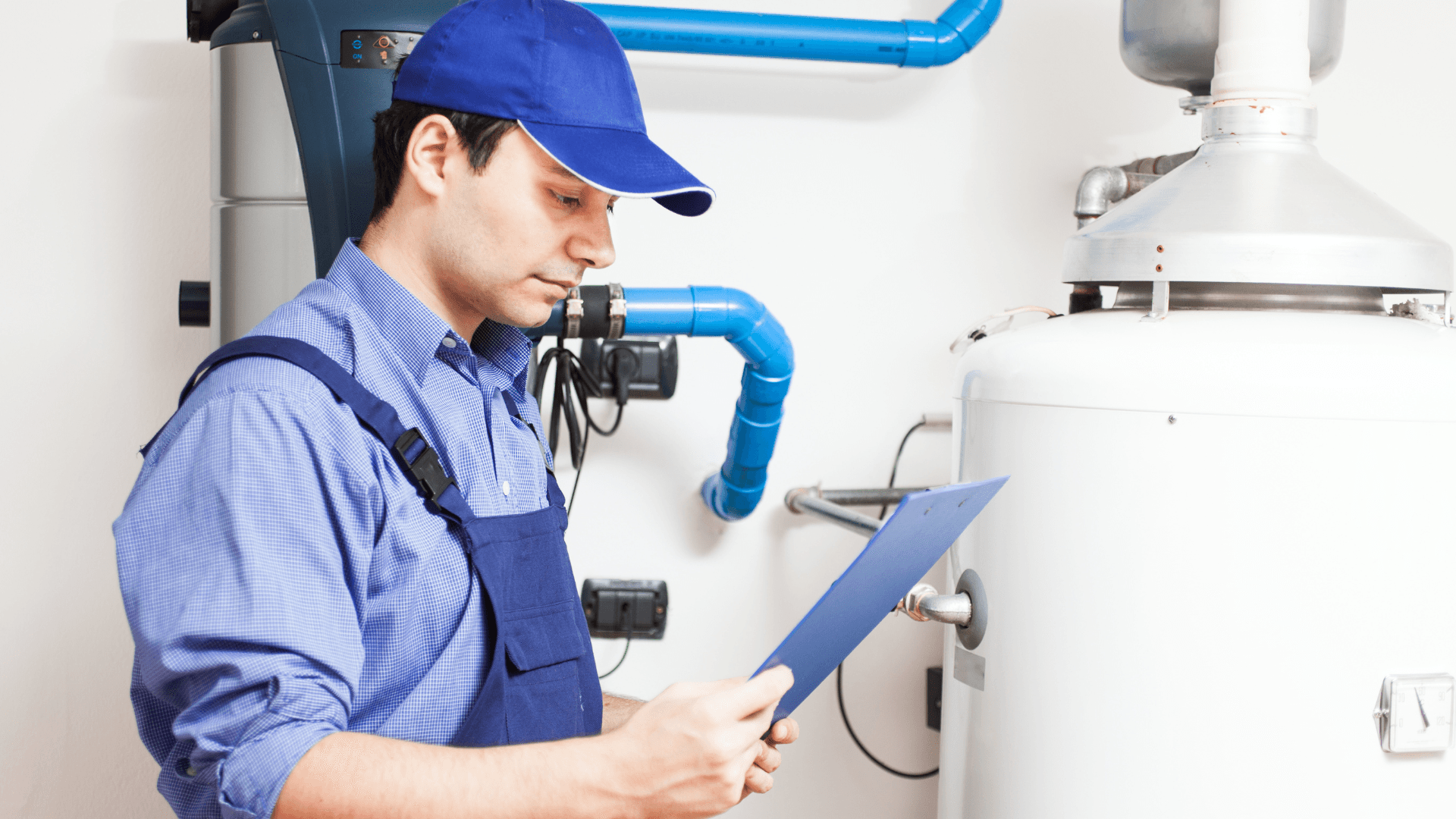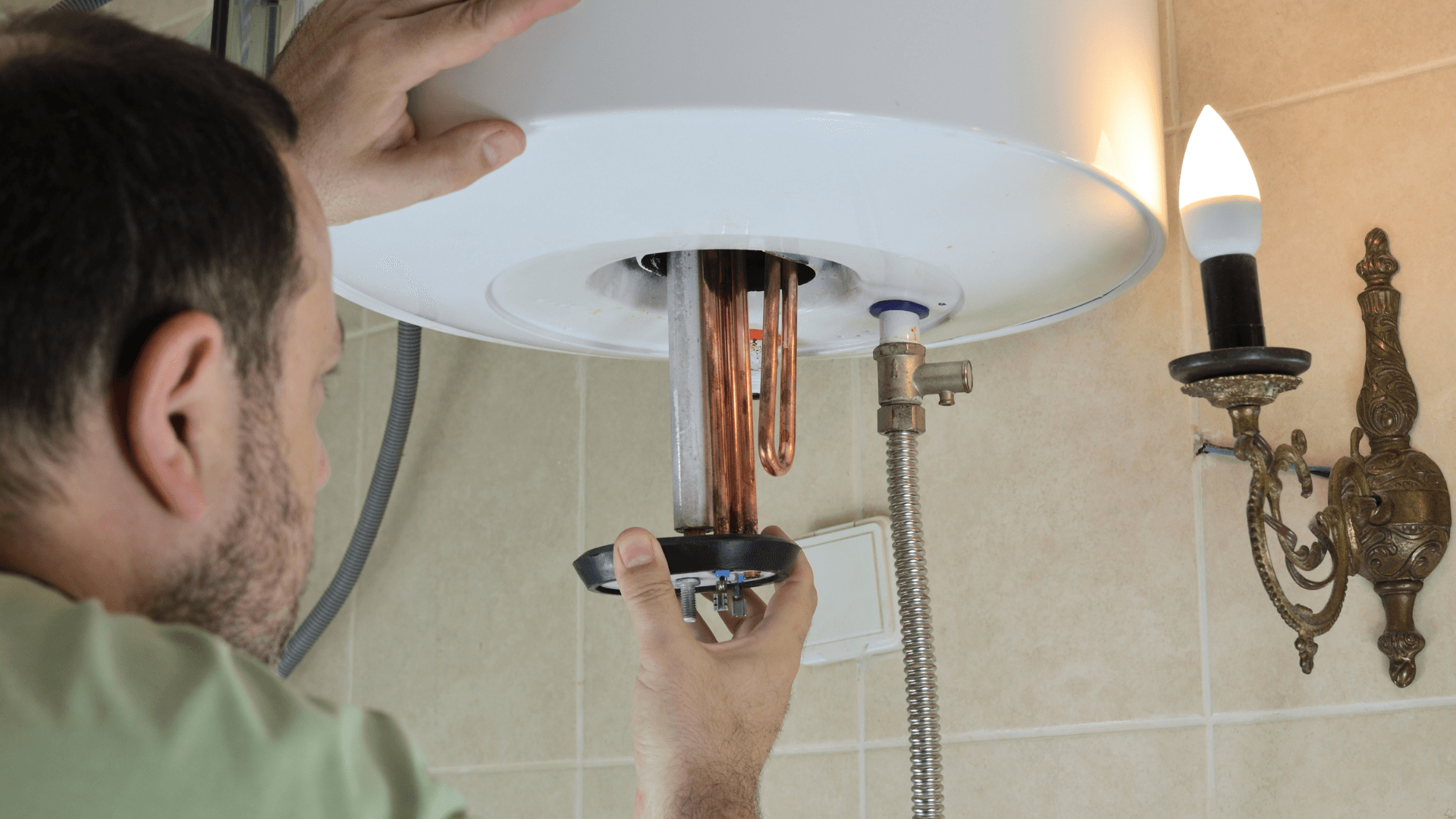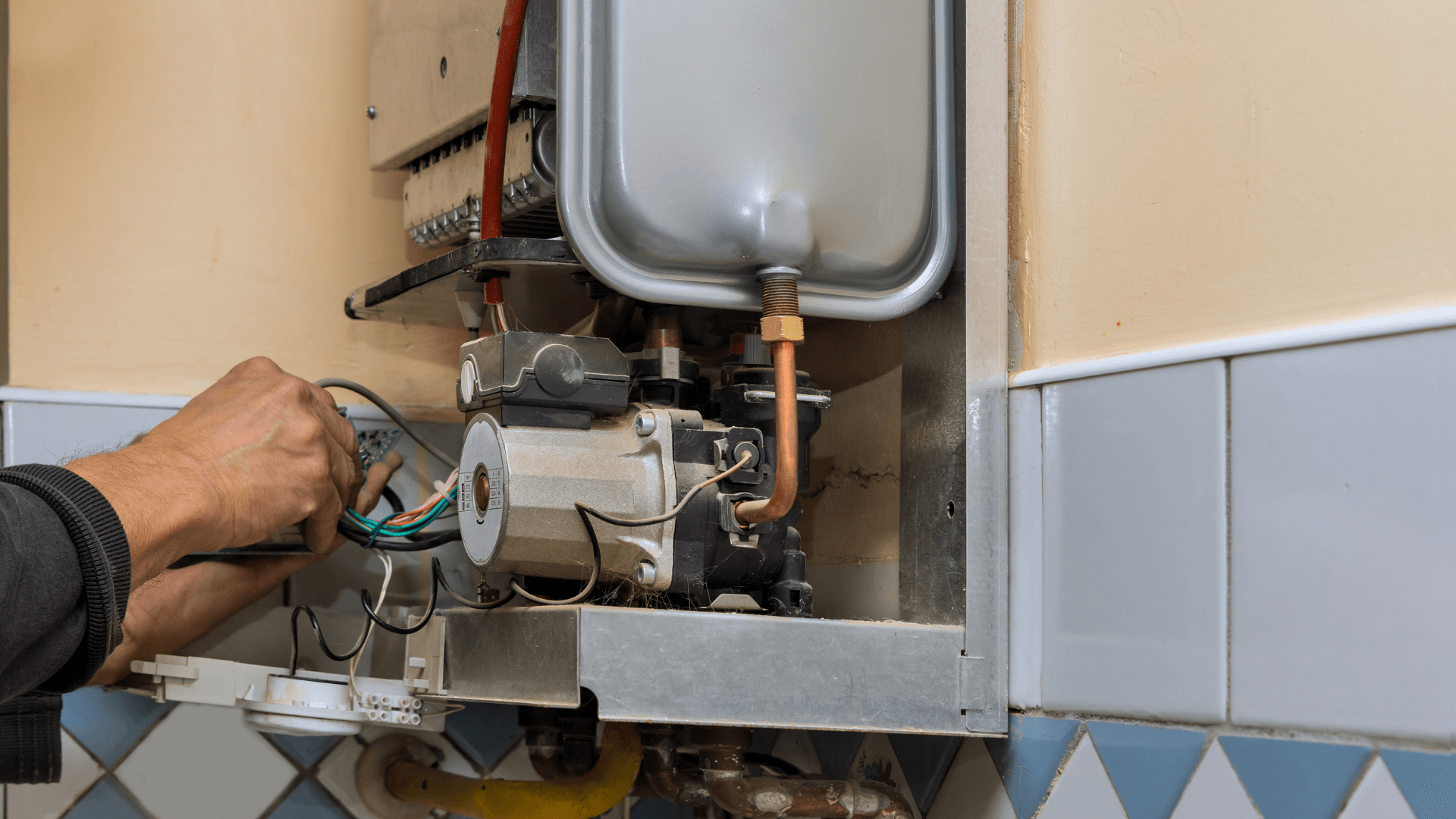Have you ever stepped into a shower expecting to be soothed by warm water only to find yourself in an icy-cold surprise? Waiting for what feels like an eternity just to get lukewarm water out of your tap? If you’re struggling with the water in your home taking a while to get warm, there's no need for despair; let’s look at why this happens and how you can address it!

Check the water heater's thermostat to see if it needs to be adjusted
Issues with water temperature are often caused by the thermometer on your water heater. Thankfully, these are often the easiest issues to fix as well! Checking your water heater's thermostat is an important step in maintaining the efficiency of the appliance, and it can take less than 10 minutes to do. Your thermostat is your key to safe and comfortable showers: set it correctly to avoid hazardous burns from overly hot water or the frustration of never warm enough water. Knowing how your water heater’s thermostat works is also essential for preventing your home from being exposed to potential health hazards associated with fluctuating temperatures, such as bacteria growth in the tank. Over time, the thermostat can become inaccurate and will need to be adjusted to match the temperature you desire. Another benefit of being able to monitor and adjust the thermostat yourself is the potential savings on your energy bill from the heater not needing to work as hard to heat the tank!
Flush out the water heater to remove any sediment that has built up inside
It's important to flush out your water heater on a regular basis to keep it functioning properly and to remove any sediment that has built up inside. This procedure can help prevent sediments from collecting inside the tank, which can impact its ability to heat the water efficiently. The process is relatively simple: to flush it out, turn off the water supply for the heater and place a bucket underneath the drain valve at a lower point in the tank. Attach a garden hose to the opening at the top of your tank, and flush water through the system. Once you open the drain valve about halfway you'll find that hot water will begin to pass through; continue rinsing your water heater until clean water flows freely without signs of dirt or debris. Be sure to tighten all connections securely before restoring power and gradually turning the water back on. Remember, it will take an hour or more to refill the tank and get the water warm again!

Inspect the anode rods in the water heater for corrosion
Another reason your water may be taking too long to get hot is the Anode Rods inside your water heater. An anode rod's responsibility is to absorb corrosive elements that are contained within the heated water, but absorbing those elements means that the rod itself will eventually corrode. This means that all anode rods are made to be temporary so they can be changed as needed.
Scheduling regular inspections for your water heater's anode rods is essential in order to ensure it maintains healthy levels of efficiency, as it is important to visually check the anode rods found inside a water heater tank for any corrosion. Without the presence of the anode rod, contamination of the components that make up the water heater can occur and potentially result in malfunctions or even worse, failure. In order to prevent major problems down the line, it is essential to take a look at these crucial components on a regular basis.
To inspect the anode rods, find where they are located around the top of the tank and remove them to see if there are visible signs of corrosion. Rust or deposits like scale buildup may indicate a problem. If you're unsure about what you can see, contact a professional for advice on how best to proceed. Taking action when necessary ensures that your water heater always operates safely and provides you with optimum hot water efficiency.
Consider installing a new water heater if none of the above solutions work
If your current water heater isn't working properly and you've exhausted other repair options, it might be time to invest in a new one. Like all other appliances, water heaters aren’t able to last forever, and sometimes repairs to an existing heater can start to add up to the cost of a new replacement. Replacing a worn out or broken water heater can bring immediate relief from a lack of hot water, and even energy savings in the long run due to improved performance and efficiency. Plus, opting for a high-tech model can even offer further conveniences like more precise temperature settings, remote control, and integrated leak detection. You could even install a tankless water heater to instantly get water exactly as warm as you’d like it! With all these benefits, installing a new water heater could be the right move for your home.

Conclusion
In conclusion, water heaters are essential to a comfortable daily life, and when they break down it can be a huge upset to you and your family’s routine. Taking the time to check the thermostat, flush out any sediment buildup, and inspect for corrosion on a regular basis can all be helpful in keeping your water heater in proper working order. Having regular maintenance checks will also ensure that your water heater is always running efficiently and prolonging its lifespan.
If you think your water heater needs attention or if you are in need of an annual check-up, don’t hesitate to call Dignity Plumbing for reliable and trustworthy plumbing service. With our experienced team of professionals you can rest assured that your issue will be resolved as quickly and efficiently as possible! Keep these tips in mind, and remember – take care of your home’s plumbing now to avoid any major inconvenience later on down the road!
